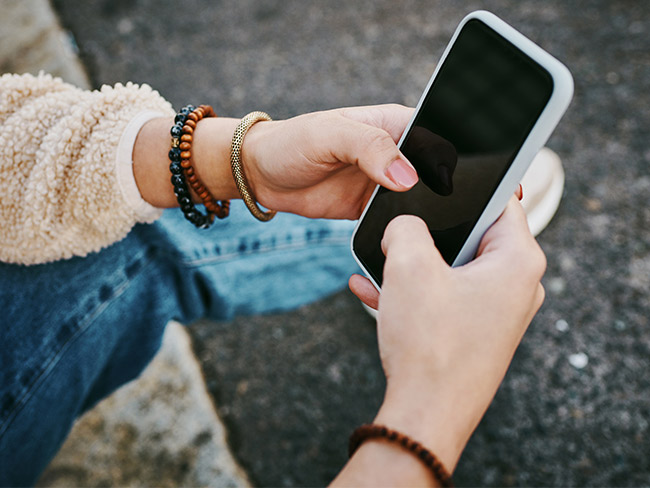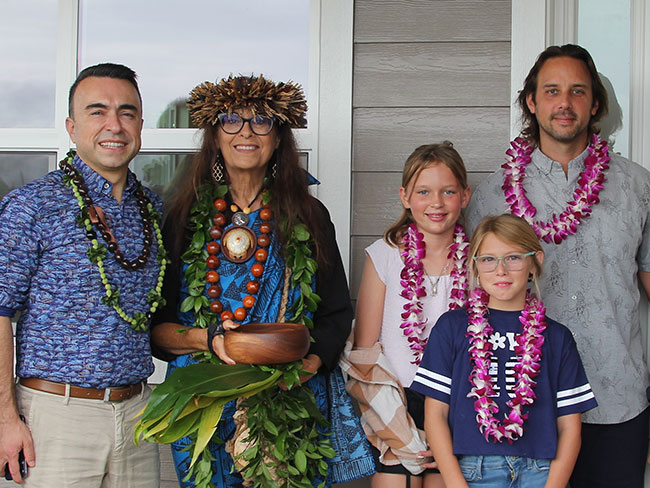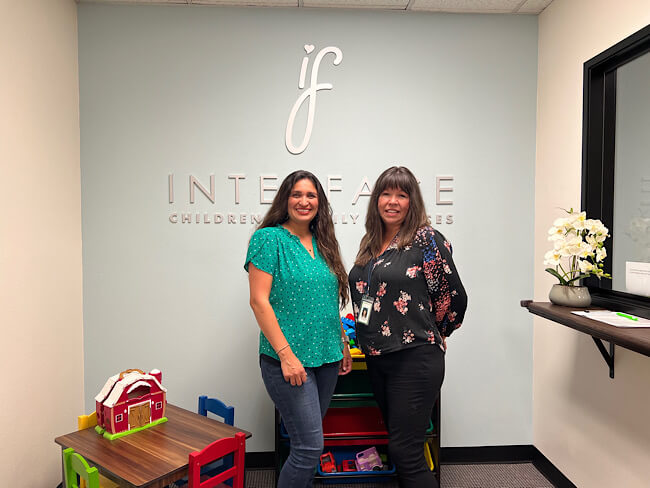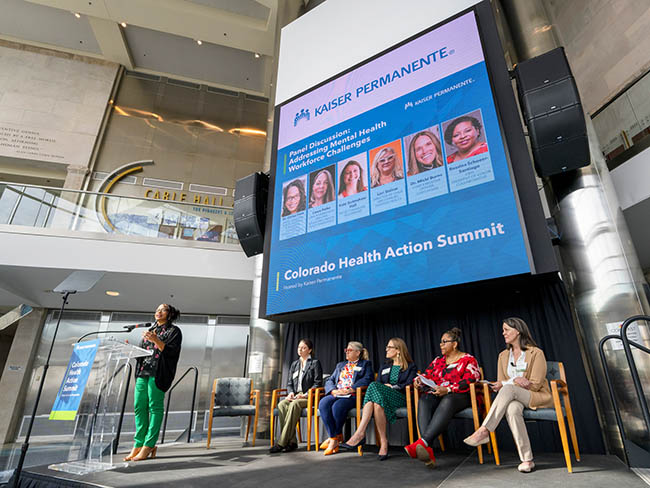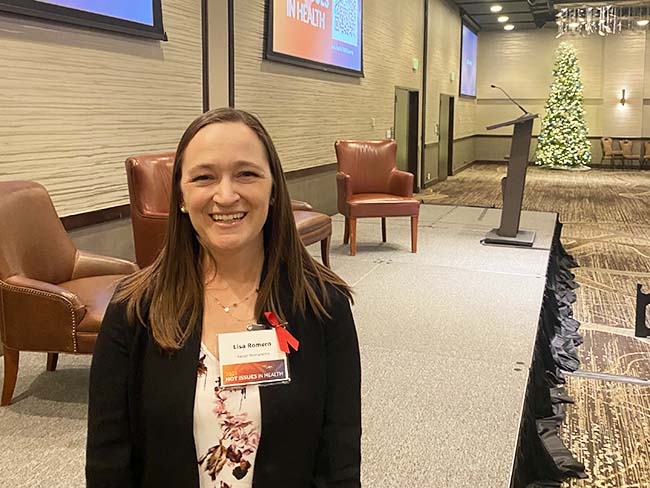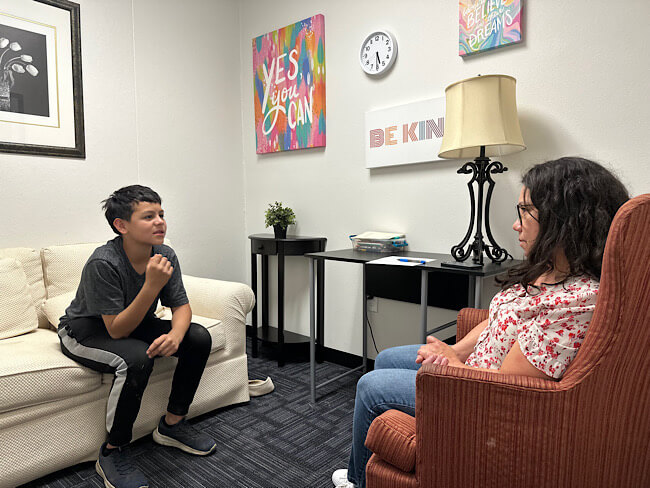Los Angeles area wildfires: How we helped our communities
We moved quickly to ensure that people in our communities could still get high-quality health care — even as many of our own people were affected.
Kaiser Permanente nurses Tiffany Ryan and Maria Brooks care for patients at a mobile health vehicle at Pasadena City College during the Los Angeles wildfires.
When wildfires erupted in the Los Angeles area in January 2025, Jeremy Maggin, MD, had to act quickly.
As an emergency medicine physician and regional physician director of emergency preparedness for Kaiser Permanente in Southern California, Dr. Maggin needed to help lead our emergency response. But first, he had to protect his family.
His family home was in an area near one of the wildfires.
“It was bad timing — we were just starting emergency operations,” Dr. Maggin said. “But I knew I had to make sure my family was safe first before I could help others.”
Once Dr. Maggin got his family to safety, he turned his attention to his job.
He was part of a strong effort at Kaiser Permanente to make sure that our members, workforce, and communities continued to get care during a tough time, even when our facilities and people were affected.
How we helped our impacted communities
While people were being evacuated, Kaiser Permanente acted quickly. We offered medical care and supplies at evacuation centers, joined partners to support the community, volunteered resources, and donated funds to organizations that provided direct relief to impacted communities and first responders.
- Wildfire Resource Hub — The Kaiser Permanente Walnut Center became a place where people could get help. Working with the California Voluntary Organizations Activate in Disasters and the Emergency Network Los Angeles, more than 2,400 households received long-term recovery case management and financial assistance. Over 20 nonprofit organizations set up in Walnut Center to provide financial assistance, recovery resources, food, crisis counseling, prescription glasses, air purifiers, and other supplies.
- The Pasadena Convention Center — For 2 weeks, this location became an evacuation center. More than 500 Kaiser Permanente staff members — physicians, nurses, mental health staff, pharmacists, and nonmedical personnel — worked and volunteered in shifts, contributing over 8,300 hours treating more than 1,200 patients. People who were seriously hurt or sick were taken to nearby emergency departments.
- Mobile health vehicles — Typically used for preventive screenings at employer and community sites, we sent several vehicles to different locations, including the Westwood Recreation and Evacuation Center, the FEMA Disaster Recovery Center at Pasadena City College, BMO Stadium, and SoFi Stadium. These vehicles helped us provide essential medical services and over-the-counter medications to more people in need.
- Mental health support — Mental health professionals from across California volunteered to offer extra support and resources to our members and people in the community affected by the fires.
Donations to support recovery
Recovery from disasters like wildfires takes a lot of resources. We’re grateful to the community organizations that helped guide people through the crisis. To support residents and first responders, we donated over $1 million, with funds to these organizations:
- Los Angeles Chamber of Commerce Foundation — $500,000 to help small businesses rebuild stronger
- The American Red Cross Los Angeles Region — $100,000 to provide emergency support in Los Angeles
- The California Fire Foundation — $100,000 to support first responders, volunteer firefighters, and displaced people
- The California Community Foundation — $100,000 to help communities recover and become more resilient in the long run
- 23 other nonprofit organizations — $464,000 to provide immediate help
We also provided extensive grants, loans, and resources to support our employees and physicians who were directly affected by the fires.
FireAid concert
We were a proud sponsor of FireAid, a benefit concert held on January 30, 2025, which raised more than $100 million to help wildfire victims. All sponsorships, donations, and ticket sales are going directly to help rebuild and restore impacted communities.
Looking ahead
Big disasters like these wildfires can affect people for a long time. It’s important to learn how to protect yourself and your family from wildfires and other emergencies.
While we focused on helping people affected by the wildfires in Los Angeles County, we recognize there is a need for long-term recovery. We’ll keep working with city and county leaders, local groups, and our members to help the county recover and stay strong.
For over 80 years, we’ve been committed to building healthier communities — and we’ll continue doing that, now and in the future.
